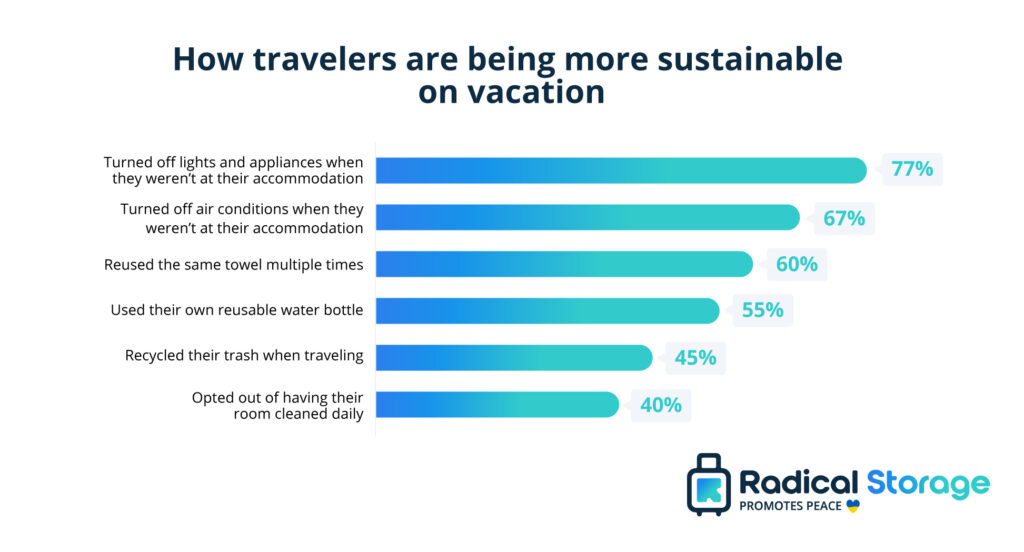Choosing Sustainable Transportation
Getting to your destination is a big part of your carbon footprint. Flying, while convenient, is a major contributor to greenhouse gas emissions. Consider alternative options like trains, buses, or even cycling or walking, where feasible. Train travel, for instance, often offers stunning scenery and a more relaxed journey. If flying is unavoidable, offset your carbon emissions by donating to reputable carbon offsetting programs that invest in verified environmental projects. Remember to research airlines; some are making more strides towards sustainability than others.
Eco-Friendly Accommodation
Think beyond the big hotel chains. Look for eco-lodges, guesthouses, or homestays that prioritize sustainability. These smaller establishments often use renewable energy, conserve water, source local food, and minimize waste. Check for certifications like LEED (Leadership in Energy and Environmental Design) or Green Globe, which indicate a commitment to environmentally responsible practices. Supporting local businesses also boosts the local economy and reduces the environmental impact of large-scale tourism.

Responsible Wildlife Encounters
Experiencing wildlife should never come at the expense of the animals themselves. Avoid attractions that exploit animals for entertainment, such as riding elephants or interacting with captive dolphins. Instead, choose ethical wildlife tours that prioritize conservation and animal welfare. Look for tour operators who support local communities and contribute to conservation efforts. Remember to maintain a respectful distance from wildlife and follow the guidelines set by local authorities and tour guides.
Minimizing Your Waste
Reduce your impact on the environment by minimizing waste during your travels. Pack a reusable water bottle to avoid single-use plastic bottles. Carry reusable shopping bags and refuse plastic straws and cutlery. Support businesses that prioritize waste reduction and recycling. Even small changes, like choosing to eat at restaurants that use sustainable packaging, make a difference. Remember to dispose of your waste responsibly, and if recycling facilities are limited, take your trash with you until you can find appropriate disposal.
Respecting Local Cultures and Environments
Sustainable travel is not just about the environment; it’s about respecting the local cultures and communities you visit. Learn a few basic phrases in the local language, be mindful of local customs and traditions, and support local businesses. Avoid activities that could harm delicate ecosystems, such as coral reef damage through careless snorkeling or littering in natural areas. Remember that you are a visitor and should act responsibly to preserve the environment and culture for future generations.
Conserving Water and Energy
Even small actions in your accommodation can make a big difference. Turn off lights and air conditioning when you leave your room. Take shorter showers to conserve water. Reuse towels and linens to reduce laundry demands. These seemingly small actions contribute to a larger effort in reducing your overall environmental footprint. Be mindful of your water usage, especially in water-scarce regions. Choosing accommodations that actively promote water conservation is a great way to support sustainable tourism.
Supporting Local Communities
One of the best ways to ensure sustainable travel is by directly supporting local communities. Eat at locally owned restaurants, buy souvenirs from local artisans, and participate in activities that benefit local people. This not only helps preserve local traditions and cultures but also ensures that tourism benefits the community rather than exploiting it. By choosing to spend your money locally, you’re contributing to the economic well-being of the area and empowering its residents.
Planning Ahead for a Sustainable Trip
Before you even set foot on a plane, train, or bus, do your research. Learn about the environmental challenges faced by your destination and choose activities that minimize your impact. Read reviews of tour operators and accommodation providers to ensure they align with your sustainability values. Planning ahead allows you to make informed choices and contribute to a more responsible and enjoyable travel experience. Consider the environmental impact of every decision, from choosing your transportation to selecting your activities.
Offsetting Your Carbon Footprint
While reducing your carbon footprint is the primary goal, it’s also important to acknowledge that some emissions are unavoidable. Investing in reputable carbon offsetting programs can help compensate for the remaining emissions from your trip. Research organizations that invest in verified projects such as reforestation, renewable energy, or methane reduction. Remember that offsetting should be seen as a supplementary measure, not a replacement for reducing your environmental impact in the first place. Transparency and accountability are key factors to consider when selecting a carbon offsetting provider. Read more about sustainable travel trends.